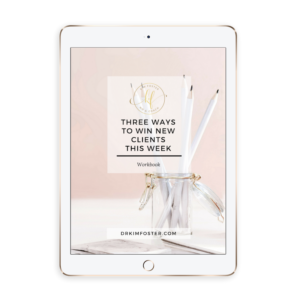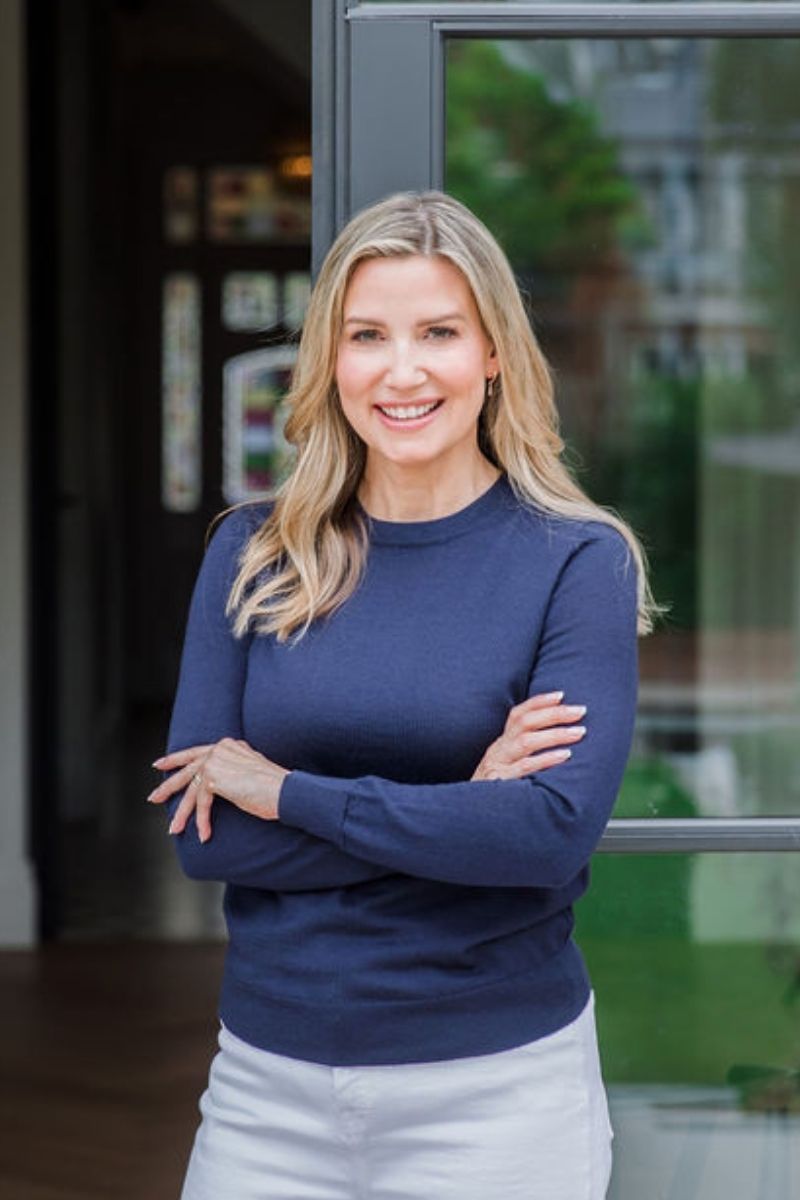
If you identify as an introvert, you may have wondered if you’re cut out for this entrepreneurial game. All that marketing, self-promotion, visibility stuff…so much easier for the extroverts, right?
Well, in this post (and podcast episode) I dive into the ADVANTAGES of being an introvert when it comes to building a wellness coaching business, and exactly how you can leverage your strengths when it comes to marketing yourself.
Here are some of the things I’ll be covering:
- 6 strategies for marketing yourself as an introvert
- how to know if you’re an introvert…and how to use it to your advantage
- what introversion IS and ISN’T
- how to claim you superpowers as an introvert
So let’s dive in!
By the way, if you’d prefer to listen to this topic than read it…you can do that right here:
Now, let me ask you: do you identify as an introvert?
This is a really interesting issue for me, personally, and also for many of the women in my community, because it seems to me that MANY of us are on the introverted side of the spectrum, in wellness and coaching.
And I said “us” because, yes, I generally identify as an introvert.
In fact, in many ways I am a classic introvert. I love being by myself. Like — LOVE it. I crave it, in fact, if I don’t get enough of it. I love the quiet, I love the solitude. It’s where I come up with my best ideas, where I’m most creative, and generally, most happy.
I recharge when I’m alone, which is a classic introvert quality.
I’ve really always been this way. Was always the kid reading a book on the playground. Was always the kid who wandered around by myself, daydreaming, and being perfectly content making things up in my mind, all by myself. I really never remember feeling “lonely” or “bored”. Those emotions are fairly unfamiliar to me. And, you’ve heard me talk about my creative, artsy childhood and adolescence, writing and doing all the visual arts and musical things.
In contrast, my husband is a classic extrovert. He is very charming and outgoing, and loves being around people. He is completely comfortable in pretty much any room, can walk into any situation and start striking up a conversation with people. He’s always the guy speaking up in meetings and happily gives presentations and teaches classes, and all those things. Honestly, I love all those qualities, and they say we’re drawn to the qualities we see missing in ourselves, and I’m pretty sure those were the qualities that I found most magnetic in him, because they were almost like *exotic* personality traits to me.
Now, throughout my life I have found a lot of ways to *embrace* my hidden extroverted qualities — for example, performing. I always loved to perform when I was a kid, and I have put myself in a variety of settings where I had to channel my inner extrovert–does that make sense? Inner extrovert? Hahaha….anyway.
Like running for high school president — which I won, by the way — but it required me to make a campaign speech in front of the entire school. And then run student council meetings every week throughout my final year in high school. Med school certainly required me to interact with lots of people, lots of large-scale classes and presentations and groups. And now, as a coach and an entrepreneur, public speaking is something I’ve been doing more and more of. So it’s not that I *can’t* do it.
But always, always, I always come back to my preferred way to recharge, which is to be alone.
Now, people talk a lot about introversion these days — a lot more than before, anyway — ever since the book Quiet. If you haven’t read the book Quiet, by Susan Cain, you really should. It’s so awesome. Or–at least watch her TED talk. It’s brilliant. And I think this is a great thing that there’s a lot more conversation about introversion recently. It’s kind of like out of the closet. As an introvert, I love that there’s a more positive movement toward introverts these days.
However, I still think there are some misconceptions. And I think that introversion gets tossed around a little too readily, to explain away some behaviors and tendencies that aren’t really introversion.
Misconceptions About Introversion
For example, some people say they’re introverted…but what they really are is a person with social anxiety. These are different things. Introverts don’t avoid social settings out of fear or anxiety. They just prefer to be solitary. They draw energy from their alone time. But it’s not avoidance out of fear. That’s a different thing.
It’s possible to be both, but if you have social anxiety — an anxiety disorder around being in front of people, social settings, or scrutiny, then know that this is something that you can get help for, and it doesn’t have to be this way.
I used to have major social anxiety. A big-time fear of scrutiny and speaking in public and certain social settings — not all, but certain ones. And I worked really hard to overcome a lot of those fears, and I largely did, a while ago…but I’m still an introvert. I still enjoy being alone, and recharge in quiet, and do all my creative work and productive stuff in solitude.
It’s not fear of being in a room with a bunch of people that makes me think twice about doing it–it’s just that it’s not the most productive or aligned way for me. Group meetings and group brainstorming sessions are usually a waste of time for me, if I’m being totally honest. I don’t really come up with great ideas in those kinds of settings — I come up with all my good stuff when I’m in my own little bubble.
I also, being totally honest here, don’t really *contribute* a lot of stuff in group meetings. And this used to confuse me. I never used to understand why I didn’t speak up or ask questions — even if I didn’t feel anxious or worried about it, I just wouldn’t really. Until I came to understand that it was just my introversion. I just found I was too busy listening and absorbing and digesting what was being said, instead of trying to be heard. I’ve never been the one to throw up my hand and state my thoughts or be the first to ask a question. For me, it’s always been about listening, not about being heard…and that’s one of the core truths of introversion, for me.
But that said, I definitely enjoy social settings. I enjoy connecting with people and mingling and speaking in public, and performing (maybe you’ve heard in my previous episodes when I talked about my early teenage years of being on stage and all about the performing arts)… in limited bursts, I should qualify. I legitimately do enjoy those activities and have fun and get really fired up in a room of likeminded people. I love that.
So much so that I’ve wondered from time to time if I’m actually an extrovert who was pushed into a shell by some social anxiety when I was younger. And I think I may actually be closer to the middle of the introvert-extrovert spectrum than I always assumed I was. But definitely with a preference toward introvert. Because when I really think about it, I feel most nourished when I’m totally alone and in a quiet house all by myself.
This of course, has created a big challenge for me as the mother of two boys. Omg two very crazy, very loud boys who are active and energetic and did I mention loud? Yes, so my alone time was distinctly cut back when I became a mom, and I’ve had to work hard to carve out some wedges of quiet alone time.
But anyway, back to the subject.
So introversion is not the same thing as social anxiety. It’s not the same thing as shyness. And it’s definitely not the same thing as having a lack of confidence. A lot of times people will label themselves as an introvert when what they really have is a lack of confidence. And again, confidence is something that can be worked on. It’s something that you can build. So it would be a shame to just chalk things up to being an introvert, when really it’s a confidence issue.
Now, all that said, if you do know that you are an introvert or have introverted tendencies…let’s talk about that.
Specifically, let’s talk about how to be an introverted entrepreneur, and how to market yourself when you’re an introvert.
Because this is not always easy! Much of the world is oriented toward extroverts. Social media, for example, seems to have been created for extroverts. And group things, meetings, networking, publicity…it all seems to be so extrovert-biased, doesn’t it?
So it can be a challenge, if you’re an introvert, to figure out how to market and promote yourself in a way that feels good, that feels aligned, and that doesn’t completely drain all your energy.
So I’ve got 6 tips.
Before I get there, though, I just want to clear up some terminology. I believe–as do many people–that the introverted-extroverted thing isn’t a black and white situation. It isn’t an “either-or” like you’re purely one way or purely the other. For me, it’s a spectrum. Everyone has a bit of a blend. It’s the rare person who is completely one way or the other in all situations. So, in this episode, when I talk about “introverts” I’m talking about people who are predominantly introverted, or who lean closer o the introverted side of the spectrum. Same thing when I say “extroverts” … it’s really more of a tendency. Not black and white.
Okay, that said, let’s move forward.
Strategy #1: Embrace your power as an introvert
That’s right! I actually believe that introversion can be a superpower–if you allow it to be.
It can often feel like the world is oriented to favor extroverts. And that’s because extroverts are the most visible, let’s face it. The public sees extroverts more commonly, and the extroverts are the ones who are calling the meetings, and the conferences, they’re interacting with people (because that’s how they’re hard wired), voicing their opinions, generally being seen and heard, because that’s how they prefer to work.
But that definitely doesn’t mean that there isn’t a place for introverts in the world, and specifically as entrepreneurs. In fact, the world NEEDS introverts, in my opinion.
And here are a few superpowers that you can claim as an introvert:
- Excellent listening skills. Introverts are wonderful listeners. This, in fact, is something introverts tend to love to do–much more so than extroverts. This quality really lends itself to the profession of coaching, for example, which is SO much about listening.
- Being well prepared. Introverts love to be well prepared in their work, and gain a lot of satisfaction and comfort from being prepared and organized, in general.
- Observing emotions. A natural sensitivity to others’ emotions often goes with the territory of being an introvert. They’re often really good at reading unseen, unspoken messages in a situation and tapping into their natural empathy
- Naturally creative. Having a rich inner world means that introverts are naturally more creative and imaginative.
- Strong north star. A strong sense of your own inner motivation, your own values is often a hallmark of introversion. Introverts may be naturally less oriented to pleasing others.
- Depth of skills & mastery. The focus and quiet time required to go deep on mastering a skill or solving a problem is something that will come easier for an introvert, compared to an extrovert.
Okay, so that’s strategy #1, embrace your superpowers as an introvert.
Now let’s move on to…
Strategy #2: Schedule your social media
I really couldn’t figure out social media until I began embracing scheduling. So…I know that some people are just naturally inclined to post things spontaneously, share their experiences in the moment and all those kinds of things. But I am just not that way. It doesn’t really occur to me, in the moment, to share the stuff I’m doing. I’m just *doing* it. Now, maybe htis is jsut a habit, not really a tendency like being an introvert, but I kinda think it is acutally an expression of introversion. I’m not oriented toward showing and sharing and being seen and heard. Not because I’m afraid of it…but becuase it almost doesn’t really OCCUR to me. I don’t think of it. Until much later.
So, knowing that social media is important in terms of building a business and building visibillity, I have figured out how to be more visible online without having to retrain myself to think about sharing stuff throughout the day. And that’s just to simply schedule it. Of course, this is also a timesaver, and a productivity tool, but in this context, it’s a way of getting out there, without having to try to change my natural inclination.
So I batch my social media posts, I schedule them — with the help of my social media manager, naturally — and I know I will talk much more about the concept of outsourcing and hiring help in future episodes of the podcast. But this totally works for me. I get myself into a “sharing” frame of mind, and then batch produce all my posts for the week ahead. It’s great.
If you’re an introvert, I definitely recommend this. In fact, I recommend this strategy for all entrepreneurs, not just introverts, because liek I say it’s a huge time saver.
Strategy #3: Get professional photoshoots.
This is a great way to get more visible as an introvert — without having to be all spontaneous and outgoing about it. Becuase a professional photoshoot happens behind-the-scenes, on your schedule, and usually it’s just you and the photographer. It only CREATES the impression of being highly visible and confident and whatever else you want to convey with your photographs.
A good photographer will work with you to help you be more comfortable in front of the camera, but really, anyone can take a good photo with a bit of coaching and practice and relaxing into it. People DO want to see you, whether this is something you love or not, and if it’s not your thing to take a bunch of spontaneous selfies, having a stockpile of gorgeous professional images that you can use and repurpose for months or more is the perfect way to get this done.
Strategy #4: Prioritize one-on-one meetings & authentic connection.
This, in my mind, is what actually makes introverts the perfect coaches…because introverts prefer to have 1-1 interactions and meetings, or very small groups. That intimate, authentic connection with another person is FAR preferable to big groups or meetings…so set up your business and your workday this way!
In terms of networking, introverts often thrive one-on-one.Interacting with kindred spirits is a wonderful way to build your connections without draining your emotional reserves.
Strategy #5: Manage your energy in networking events.
Even though you may prioritize one-on-one situations, there are definitely some benefits to larger groups and conferences–at times. When it’s time to allow yourself the experience of a larger community, however, don’t pressure yourself to mingle with everyone, stay up the latest, dance all night…you get to show up the way that works for you. And when you’ve had enough, you get to practice good self care by returning to your room to recharge, or meditate, or have a hot bath, or whatever.
I usually go to one or two big coaching events each year, and I absolutely love them. I turn on my extroverted juices, as much as possible, dive in…but I am VERY careful to manage my energy, and I know I need to have my own room — never do I get a roommate in these kinds of situations — and I simply go back to my room, and enjoy a little quiet time alone, ready to go back out there and have fun, without it totally draining me. I usually get a room service breakfast, and chill out by myself in the quiet, and that balance works perfectly for me.
Strategy #6: Embrace your natural affinity for sales (that’s right!)
I know this one may be tough to believe, and that’s because most people assume extroverts are naturally “better at sales,” but this is not always the case!
In fact, some of the most successful and influential salesmen have been prototypical introverts. If you read the book Quiet, by Susan Cain, you’ll read about these cases.
Because here’s the thing: being good at sales is not really about being charming, and entertaining, and outgoing. Your most powerful skill in making sales is listening.
Listening is the key to being good at sales. Really hearing what your potential client is struggling with, what her frustrations are, her problems, and then talking to her in a genuine, authentic way about how you can help with those specific pain points.
And as I’ve said, listening and that 1-to-1 connection are part of an introverts superpowers. So you have definitely got this. The big challenge is dealing with your own, inner limiting beliefs that you’re “not good at sales” because you assume you’re not extroverted enough. But for more help with this, I encourage you to go back and listen to podcast episode # 7, The Art of Sales.
Recap:
6 marketing strategies for introverts:
- Embrace your power as an introvert
- Schedule your social media, etc
- Professional photoshoots
- Prioritize one-on-one meetings & authentic connection
- Manage your energy in networking events
- Embrace your natural affinity for sales
Resources:
Quiet: The Power of Introverts in a World That Can’t Stop Talking3 Ways To Win New Clients This Week

Ready to plan your next steps in your wellness business? LET’S HOP ON A CONSULTATION CALL! LEARN MORE HERE
Podcast Subscribe Links:





